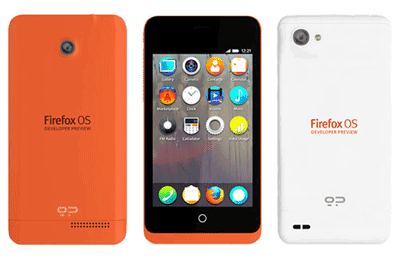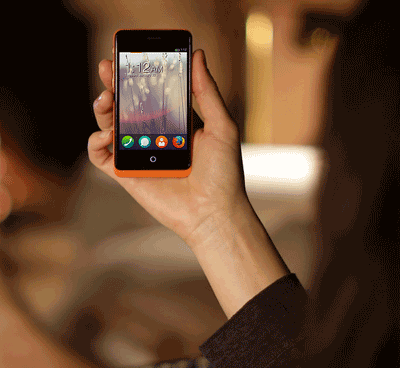Mozilla releases information about developer phones running its Firefox OS
BY MELISSA SUE SORRELLS GALLEY
Mozilla is bringing its particular brand of open and innovative dedication to the Open Web to a cellular phone near you.
The nonprofit maker of the popular Firefox browser recently announced that it will release a preview phone running its mobile operating system, Firefox OS, in February. The OS is designed to allow HTML5 applications to integrate directly with the device’s hardware, and the lighter system will allow apps to run smoothly while maintaining longer battery life than its competitors.

Mozilla’s new operating system is built entirely on open web standards. (Via: mozilla.org)
Developer phones
Mozilla has teamed up with Geeksphone and Telefonica to release two Firefox OS developer preview phones. “We believe that developers will help bring the power of the web to mobile,” writes Stormy Peters, director of websites and developer engagement at Mozilla.
The less-powerful model, called Keon, is orange, and it contains a Qualcomm Snapdragon CPU and a 3.5-in. HVGA multitouch screen. The phone is completely unlocked, and users can add their own SIM card. It’s also equipped with a single 3 MP camera, MicroSD and MicroUSB ports as well as light, and Wifi N as well as light, proximity, G, and GPS sensors.
Called Peak, the second, heavier hitting Mozilla-enabled phone is much the same, though it’s white in color, and also contains a 4.3-in. multitouch screen, two cameras (8 Mpixels in the back, 2 Mpixels in the front), and a camera flash.
By releasing developer preview phones before making the Firefox OS phones available to the general public, Mozilla hopes to make the mobile web more accessible and kick-start creation of apps for its Firefox Marketplace.
Hack days
In support of this early release, the Mozilla will also host more than 20 Firefox OS App Days from January 19 to February 2, with most taking place on January 26. These collaborating programming events are intended help developers to learn about and design for Mozilla’s open-source operating system for the mobile web.
The App Days will be held across the world, from Warsaw, Poland, to Madrid, Spain and just about everywhere in between. At each, Mozilla will present tools and technology, including mobile Web APIs, to access device hardware features such as the accelerometer and the browser-based Firefox OS Simulator for testing apps.
Additionally, Mozilla is making a “Firefox Apps & Hacks” e-newsletter available to developers who are unable to make it to the live events. And hack-addicted, new-OS lovers can download and install Firefox OS on any Android-based device.

A Keon showing off the Firefox OS. (via: geeksphone.com)
Competition
There’s little doubt that Firefox OS is being born into an already crowded marketplace, and for many users, mobile devices are only as useful as the apps you can access. If the Mozilla ecosystem isn’t adopted by developers who provide the all-important robust app support — and quickly — then it will be dead in the water.
To its benefit, Mozilla realizes this — that’s why they’re hosting Firefox OS App Days. The non-profit claims it will additionally appeal to developers by not penning them into a vendor-controlled network, allowing them to distribute apps through their own websites as well as the Firefox Marketplace.
The foundation and its supporters believe that Firefox OS will be fully embraced by developers because of the system’s open standards and reliance on the HTML5 stack, which already has a large community of established developers. Detractors, though, complain that HTML5 apps tend to be inelegant and lack the impressive features of natively-designed apps.
Developing markets
Analyzing the mobile operating system’s competition in Western markets, though, may be a waste of time, as members of Mozilla’s Developer Engagement Team have stated that these phones will be marketed more heavily toward emerging markets in Latin America, where the penetration of smartphones is still very low. There, these low-cost, low-spec phones will shine.
Even in these markets, however, Mozilla faces a challenge, as three additional low cost mobile phone platforms — Samsung’s Tizen, Jolla’s Sailfish, and Canonical’s Ubuntu — are also slated for introduction into low-saturated markets, especially China and Brazil, in 2013 and 2014.
Read about the developer preview phone and Firefox OS App Days on Mozilla. ■
Advertisement
Learn more about Electronic Products Magazine





